Why is teaching Personal Hygiene to Children Important?
Why is personal hygiene important and especially why is teaching children about hygiene important? The reason is, that good hygiene habits are key to ensuring the safety of your child and the children they interact with.
As the old saying goes, prevention is better than cure. This is especially the case when it comes to young children keeping clean.
Your little ones are always excited to experience the world and to discover it on their terms but, this can lead to parents becoming neurotic messes armed with hand sanitiser and wipes.
While avoiding all germs is unavoidable, there is a lot you can do to prepare your child for the outside world. We’ve put together a list of ways your kid can learn good hygiene habits to last a lifetime.
Our top 5 Areas for Personal Hygiene for Kids include
Oral Hygiene
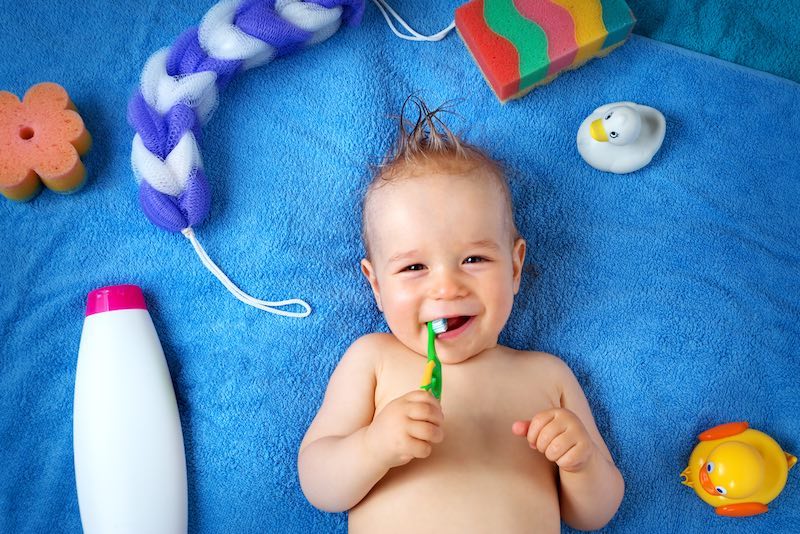
One of the most important aspects of personal hygiene for kids is oral hygiene which helps prevent gum disease and bad breath using clean water. This practice should be part of every child’s daily routine with doctors recommending a good brushing at least twice a day. While your child is young you can ensure their teeth are brushed but once they’re a little more independent it can become trickier. This is why starting the habit early is a must. To start with you should supervise your child when they brush their teeth. You can also brush your teeth with them so they can imitate and learn from you. Brushing teeth should last for at least two minutes and should be the primary cleaning method. Feel free to add flossing and mouthwash as you see fit. Remember to use products that are safe for children.
Along with a regular cleaning regime, you should encourage your child to clean their teeth after every meal. This prevents bacteria and tooth decay. You should also encourage your child not to eat too much sugary food as this can speed up the rate of tooth decay.
Proper oral hygiene does not happen overnight so start early. Practice makes perfect so start now and help them keep that winning smile.
Bathing and Showering Habits
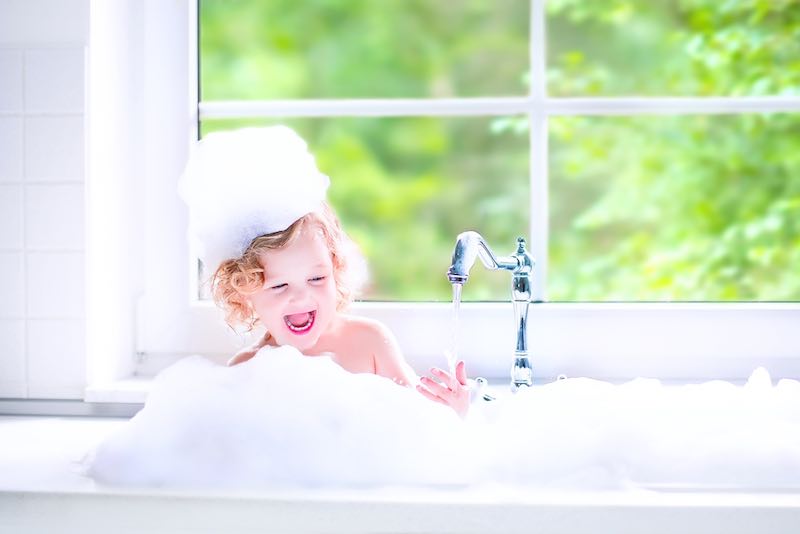
Bathing is often a love/hate relationship for children. This essential habit ensures your skin is healthy and removes dirt, dust, bacteria, head lice, and dead cells. As the body’s largest organ, the skin is incredibly important and bathing twice a day, ‘bathe daily’ can ensure your child’s skin stays healthier for longer, which makes it a very important aspect of personal hygiene for kids.
Start developing bathing habits early. Parents should bathe younger children and never leave them unattended in the bath. If you don’t have time or access to a bath, a sponge bath, soap and water will do.
Once your child is old enough to wash themselves, supervise them and teach them the correct way to wash and keep their body clean. Be sure to explain how cleaning every inch of the human body is important. Once they’ve got the basics it’s all about making sure they wash every day. This will help them socially and hygienically as they will feel and smell better.
Hair Care
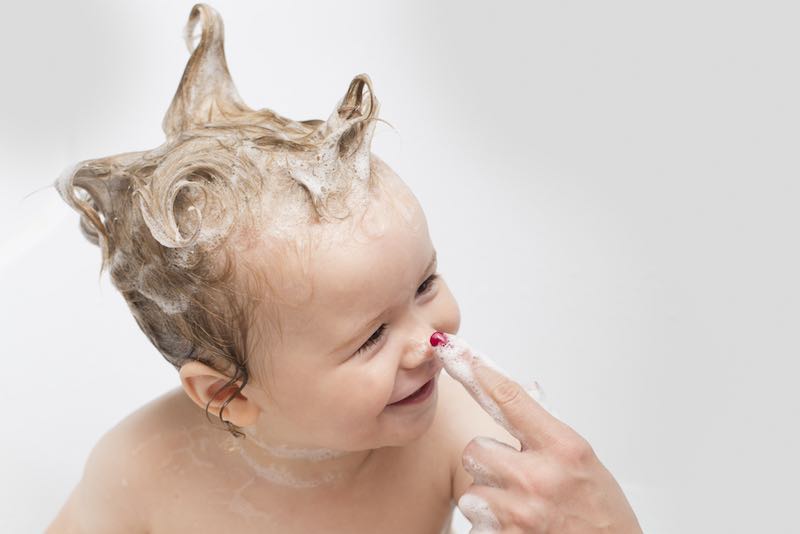
Hair care is unique to everyone with different lengths, styles, and types of hair. Oily, dry, curly, straight, long, short, start from an early age, and your child will learn that constant care is key to reducing the risk of head lice and generally feeling good.
For babies be sure to use appropriate shampoos. Baby shampoos are gentler but can still sting if the suds run into their eyes. Try to keep shampoo away from the eyes when washing and be sure to comb the hair to prevent tangles. Use a large tooth comb or soft bristle brush as this will pull less and prevent any tears.
As your child gets older teach them to brush and wash their hair regularly. It’s also important to teach them that they should never share personal objects such as combs and hats. Dreaded lice infestations can wreak havoc in schools, so stop the spread for public health. The more aware of healthy hair hygiene, the more likely your child is to avoid coming home with an itchy head.
Washing Hands
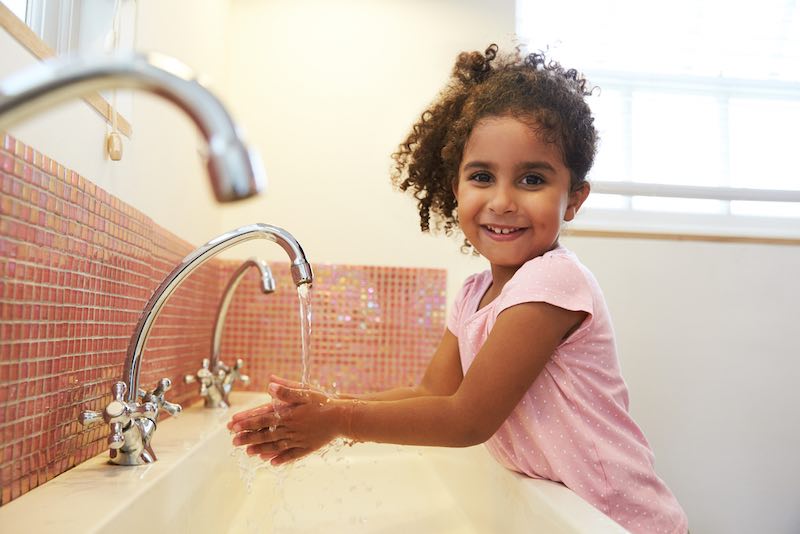
Washing your hands is a key aspect of personal hygiene for kids. Most people use their hands for almost every daily task. Holding, writing, moving, eating and countless other activities require hands, so keep your child’s hands clean to help prevent the spread of germs and get rid of dead skin cells.
For younger babies, wipe their hands with a clean washcloth. As your child becomes more independent teach them how to wash their hands with soap and running lukewarm water. Be sure to teach them to wash their hands for at least 15 seconds. This practice is taught as early as possible, generally, it starts in our Green Rooms (2+ ages) with the younger children in our Red and Yellow rooms using wipes or sanitiser with support from our staff.
Make sure they practice this at important times such as before and after meals and after using the toilet. Hand washing is also a must if your child spends a lot of time playing outside or with pets, so it is always beneficial to teach your kids a personal hygiene routine for their hands.
Home Hygiene
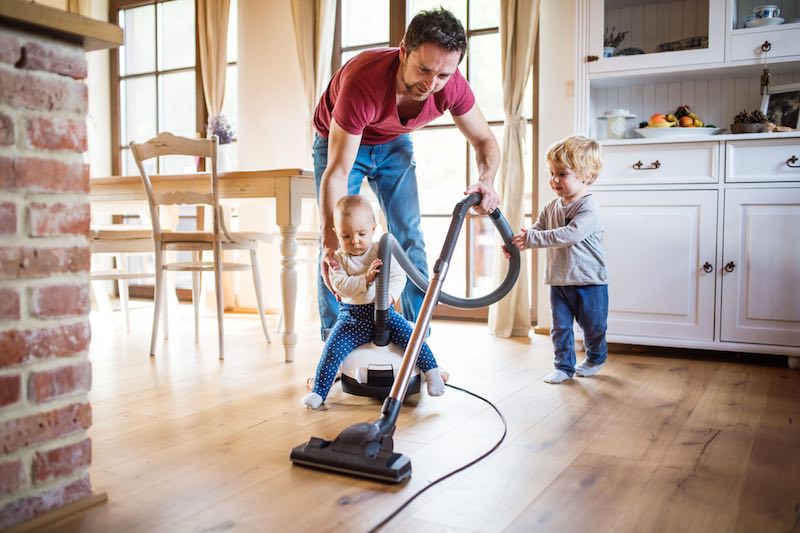
Finally, hygiene is not just about cleaning your body but ensuring your environment is tidy too. Tidying belongings away, putting rubbish in bins, and other simple tasks, even cleaning clothes can help keep your environment clean, and body odour and lower the chance of the spread of illness. While this seems straightforward, the sooner you start instilling hygienic behaviour, the sooner your child will form a habit of good personal hygiene.
These are just a few types of hygiene habits that can lead to healthier, happier children. Less time sick means more time growing, learning, and experiencing life. At Stepping Stones we ensure our nursery rooms are safe, clean, and perfectly equipped to keep your little ones entertained. If you’re interested in enrolling or would like to find out more, contact us today. We’re ready and waiting to help your little one learn and grow.
